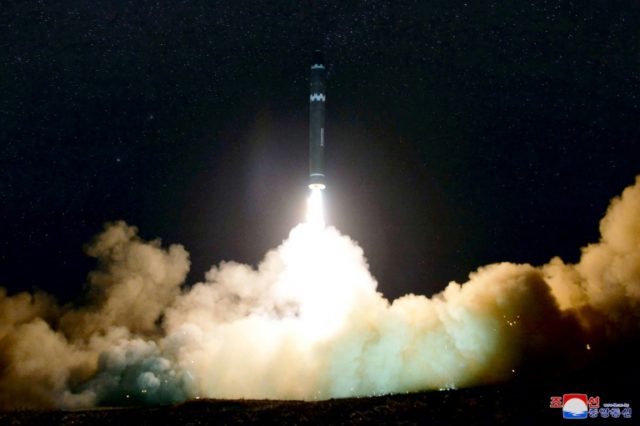Japanese news agency NHK issued a false alert on Tuesday about a North Korean missile launch it said was aimed at the country.
Bloomberg News reported:
The broadcaster issued a “J-Alert” at 6:55 p.m. Tuesday via its app and website, urging people people to take cover inside buildings or underground. NHK corrected the error at 7:00 p.m. While its television channels didn’t cover the initial alert, an apology was subsequently issued on its scheduled evening news program, as well as on its website.
This comes just days after the Hawaiian Emergency Management Agency issued a false ballistic missile alert on Saturday that took 38 minutes to be reversed.
In both the Hawaiian and Japanese cases, officials blamed the mistake on human error.
Makoto Sasaki, a spokesman for NHK, apologized, saying, “Staff had mistakenly operated the equipment to deliver news alerts over the internet.”
The New York Times reported:
After NHK’s announcement about making an error, Twitter users expressed their frustration and disbelief.
“I thought I would die,” one Twitter user wrote in Japanese, followed by a “LOL.”
Another, using the name Michiya Hayashi, wrote: “Following Hawaii, NHK did it too. Don’t become the boy who cried wolf.”
Federal Communication Commission (FCC) chairman Ajit Pai, the head of the agency in charge of the national Emergency Alert System, tweeted a statement on Sunday calling the error “totally unacceptable” and blamed the state for not having the right protocol in place to prevent it.
The Times report noted that North Korea had fired numerous missiles into the waters around Japan in recent months, including some over the country.
The investigation into the Hawaiian incident is under investigation, Pai said.
A spokesman for the Hawaiian agency said in a statement on Sunday that the employee responsible for putting out the false alarm has been “temporarily reassigned.”
The agency also said that it would conduct no more missile alert tests until it could fix the system, including creating a protocol to reverse an alert if issued in error.
Reuters reported that the Hawaiian agency spokesman, Richard Rapoza, confirmed that the employee “has been temporarily reassigned” to other duties.
An inquiry sent to the FCC seeking an update to the investigation on the Hawaiian false alert went unanswered.

COMMENTS
Please let us know if you're having issues with commenting.